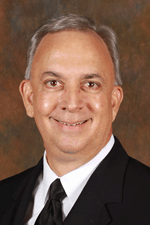
Followers of Christ are “salt and light” in the world (Matthew 5:13-16). We have the power to make a difference in our culture. The question is, will we? People of faith generally respond to the culture in one of four ways… either by condemning it, ignoring it, conforming to it, or engaging it.
Those who condemn the culture are quick to throw stones, as did the Pharisees, and choose to erect walls between faith and culture rather than build bridges. Jesus demonstrated a much different posture by loving the world, not condemning it (John 3:16-17). He responded to the condemnation expressed by the Pharisees, saying, “It is not the healthy who need a doctor, but the sick… I have not come to call the righteous, but sinners” (Matthew 9:12-13).
Some choose simply to ignore the culture. I have a three-year-old granddaughter who often masterfully ignores my attempts to engage her in conversation. She turns a deaf ear and continues with whatever activity has her attention at the moment. Similarly, some are so focused on their faith, that they are oblivious to the cultural environment around them. They simply choose to live in isolation; perhaps taking out of context Paul’s words to the Corinthian believers, “… come out from them and be separate” (2 Corinthians 6:17).
Those who conform to the culture do a great disservice to the faith. Their light is dimmed so that the world cannot see the glory of God and their salt is without savor so that, in the words of Jesus, it is “good for nothing” (Matthew 5:13). In response to the incessant pressure to conform to the culture, Paul writes, “I beseech you therefore, brethren, by the mercies of God, that ye present your bodies a living sacrifice, holy, acceptable unto God, which is your reasonable service. And be not conformed to this world: but be ye transformed by the renewing of your mind, that ye may prove what is that good, and acceptable, and perfect, will of God” (Romans 12:1-2).
In contrast to condemning, ignoring, or conforming to the culture, we have been called to engage the environment in which we live. The new wave of Twenty-first Century evangelism is marketplace ministry. Consider the voices of these spiritual leaders and students of culture:
- “I believe one of the next great moves of God is going to be through the believers in the workplace.” Dr. Billy Graham
- “God has begun an evangelism movement in the workplace that has the potential to transform our society as we know it.” Franklin Graham
- “God is marshaling his people in the workplace as never before in history. God is up to something. The next spiritual awakening could take place in the marketplace.” Henry Blackaby
- “Workplace ministry will be one of the core future innovations in church ministry.” George Barna
- “Someone recently said that the ‘First’ Reformation took the Word of God to the common man and woman; the ‘Second’ Reformation is taking the work of God to the common man and woman.” Tom Phillips, VP of Training, Billy Graham Evangelistic Association
In reality, marketplace ministry is not a new innovation of the 21st Century. It is simply a revisioning of 1st Century practices. Of Jesus’ 132 public appearances in the New Testament, 122 were in the marketplace. Of His 52 parables, 45 had a workplace context. Of the 40 divine interventions recorded in Acts, 39 were in the marketplace. Jesus called 12 workplace individuals, not clergy, to build His church. (Source: www.marketplaceleaders.org)
Jesus was keenly aware that “the spiritual manifests itself in a life which knows no division into sacred and secular” (Oswald Chambers). As people of faith we are called to participate in the redemptive work of Christ in the world; i.e., we are to be salt and light. As the salt of the earth, we must be rubbed vigorously into the culture to stave off decay. As the light of the world, we are to dispel the darkness which overshadows the culture. It was George MacLeod, a Scottish Preacher of the 20th Century, who said:
I simply argue that the cross be raised again
at the center of the market place
as well as on the steeple of the church,
I am recovering the claim that Jesus was not crucified in a cathedral
between two candles:
But on a cross between two thieves;
on a town garbage heap;
at a crossroad of politics so cosmopolitan
that they had to write His title
in Hebrew and in Latin and in Greek…
And at the kind of place where cynics talk smut,
and thieves curse and soldiers gamble.
Because that is where He died,
and that is what He died about.
And that is where Christ’s men ought to be,
and what church people ought to be about.
God has committed unto us the word of reconciliation (2 Corinthians 5:19). If we as people of faith will engage the culture, we can make a difference. The question is, will we? Will you?


